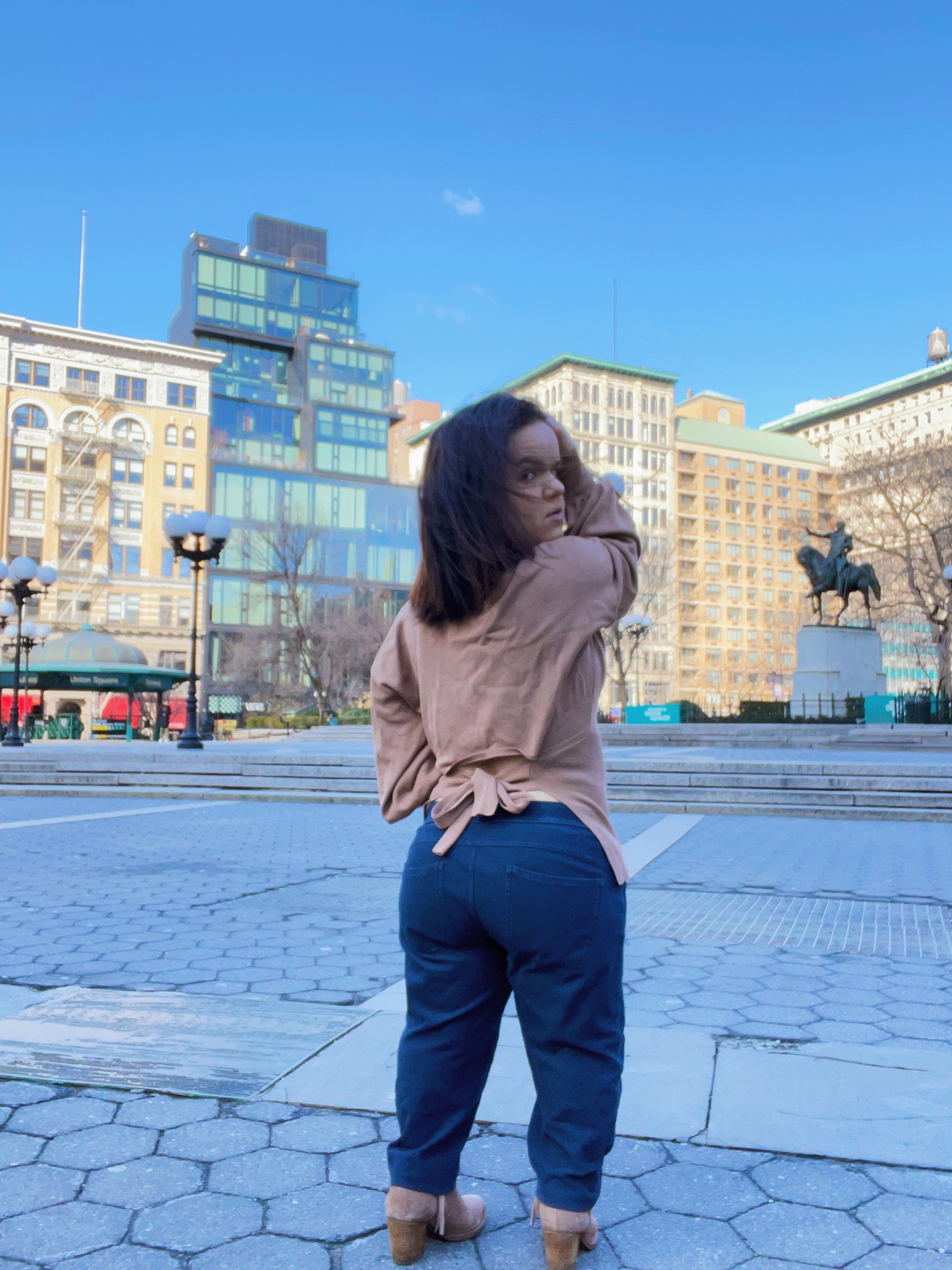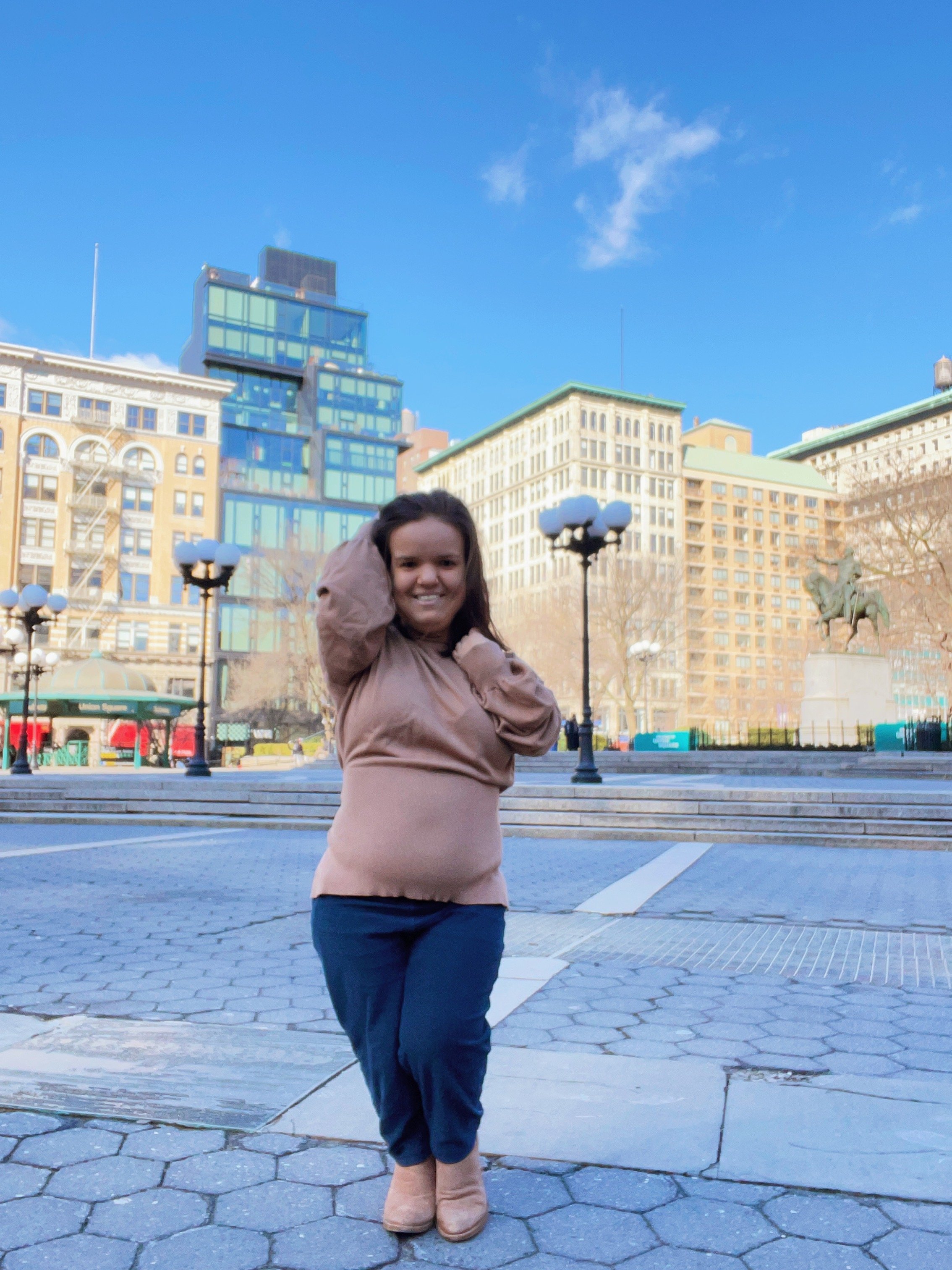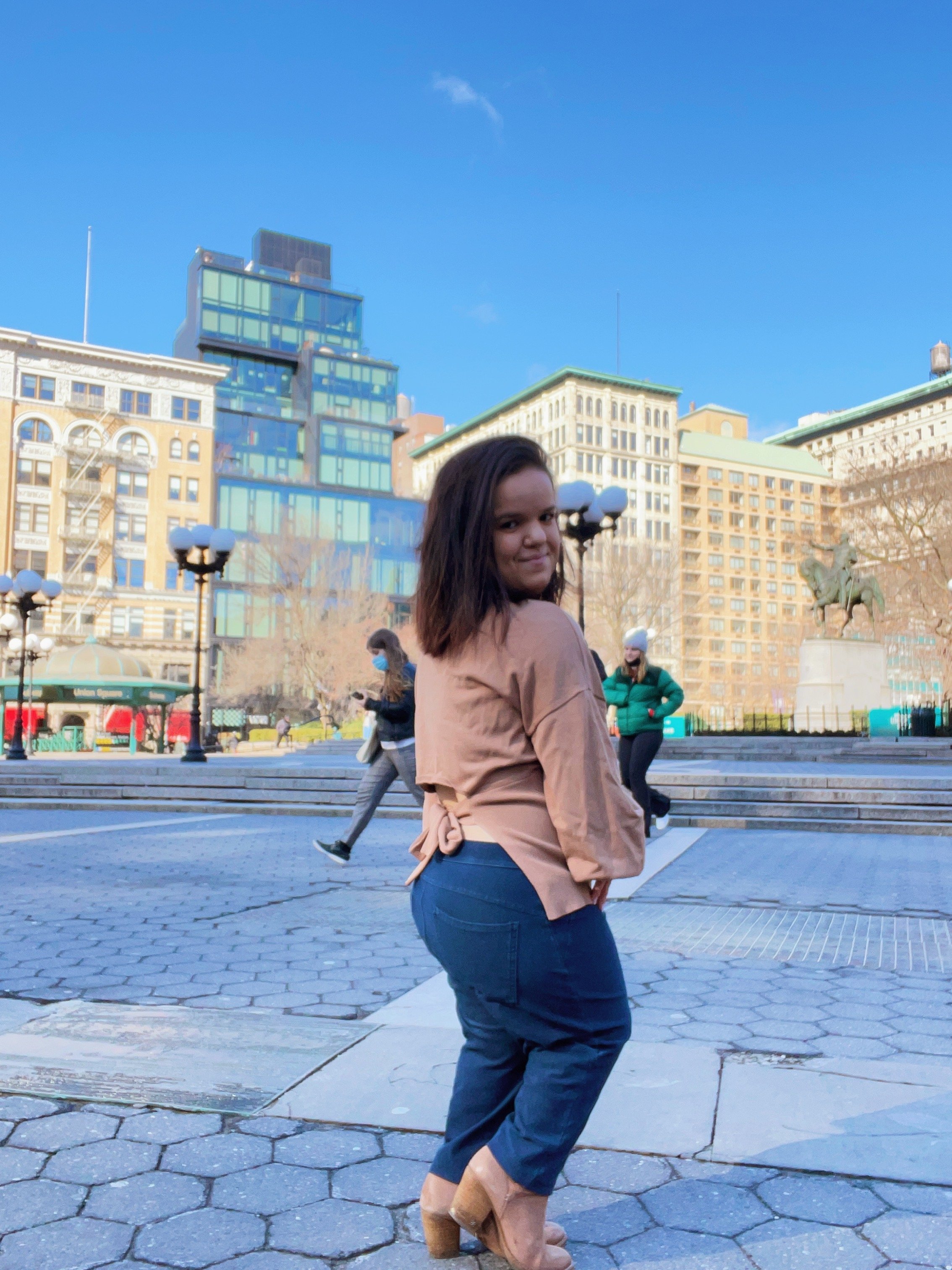A Letter To Project Runway
Dear Project Runway,
My name is Jillian Curwin. I live in New York City, work in PR, have a lifelong passion for fashion, and am a little person (dwarf).
I remember the exact moment I fell in love with you. I was in my parents’ bedroom, browsing through channels trying to find something to watch, when I stumbled upon this fashion show. I was transfixed by designers creating their modern interpretation of a USPS uniform and I couldn’t explain why. I was fascinated by the creation and judging process and knew that it was a show I wanted to continue watching. I didn’t know it then, but you were the show that introduced me to Bravo, to what fashion is, and what fashion could be.
Every season you have challenged the designers at least once to design for “real” women, meaning women whose body was not deemed modelesque by the fashion industry, women who had curves, women who were larger than a size 2, including plus-sized. These women were the designers’ moms, high school girls going to their prom, working women in NYC, etc. As the show evolved, the regular roster of models became more diverse and included models of different sizes and sexualities. Yet, it took 18 seasons for disability to finally be featured.
I remember watching the episode where the designers were tasked to create garments for Olympians and Paralympians and feeling so proud and seen by an industry that I love and often feel excluded from. FINALLY, Project Runway was showing that it is possible to design garments that are fashionable and functional. I thought this was the beginning of seeing disability included on Project Runway. The industry, after seeing us as models on the show, might finally start to see and include us in their runways, editorials, and clothing lines. After all, if the Project Runway designers are able to create an adaptive look from initial sketch to the final stitch within one to two days, the fashion industry as a whole really has no excuse as to why why they can’t take the time to learn, listen, and design for the disabled community at large.
Leading up to season 19, I was anticipating seeing how disability would be woven into the fabric of the show now that it had been introduced the season prior. After all, in past seasons, when women of different body types and sexualities were introduced, they then became a part of the regular model roster. They were no longer exceptions. I was hopeful that there would at least be one challenge where ALL the designers had to design for a client with a disability, paving the way for disability to be represented in every episode…and it never happened.
The designers were never challenged to design for visibly disabled models or clients nor did a designer select a disabled model to walk or wheel in their final collection. As I watched the last model walk the runway I felt the truth and disappointment sink in:
Disability was not going to be represented.
In years past you have tasked designers with a challenge at the 11th hour. Why not challenge them to create one, additional look for a disabled model or to adapt one of their existing looks for a disabled model? Especially knowing that you had Tommy Hilfiger as the finale guest judge, whose iconic brand has perhaps one of the most successful adaptive lines on the market.
As a little person, as a disabled person, it felt like you treated disability as a one-off; that you checked the box once and you didn’t need to do it again. If ANY other minority in the fashion industry was treated like a one-off, ignored for years, represented once, and then never seen again, there would be uproar. It would never be allowed. So, why are you treating the disabled population, the world’s largest minority, who has to buy clothes and get dressed every day like everybody else, as if we are not worthy to be on the show?
Looking ahead, I hope that you do better. Include disabled models as a part of the regular model roster, challenge the designers to design for real people with different disabilities. Do not treat disability as a one-and-done challenge because it is not.
Disability does not discriminate. Disability, like fashion, affects everyone.
Sincerely,
Jillian Curwin
Follow Me:
Instagram: @jill_ilana , @alwayslookingup.podcast
Listen to Always Looking Up:
Podcast Page: https://always-looking-up.libsyn.com
Spotify Page: https://open.spotify.com/show/4w1xelpriHmyWc8eisHamS...
Apple: https://podcasts.apple.com/.../always.../id1567615385


